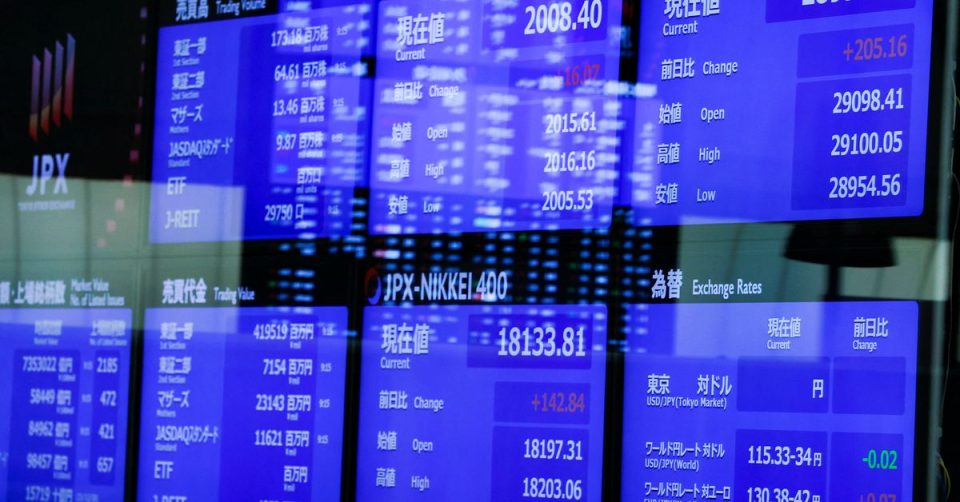On Friday, Asian stocks posted their worst month since the COVID-19 pandemic, while panic prevailed in currency and bond markets amid central bank rhetoric, fears of a global recession and rising geopolitical risks.
MSCI’s broadest index of Asia-Pacific shares outside Japan was little changed on Friday, as a rebound in blue-chip stocks in Hong Kong and mainland China offset losses elsewhere. Japan’s Nikkei fell 1.6%.
Data on Chinese factory activity beat market expectations, providing relief to the market, with manufacturing returning to growth in September after contracting for two months.
Still, the Asian index is set to drop 12.5% this month, its biggest drop since March 2020, when the COVID-19 pandemic roiled financial markets.
Hong Kong stocks are during their worst quarter since 2001, while Chinese blue chips are also on track for their biggest quarterly drop since the 2015 stock market crash at the end of September. In the forex market, traders remain cautious amid the risk of central bank intervention.
The dollar was little changed at 111.88 against a basket of major currencies on Friday, after falling 0.9% the previous day. However, it rose 2.9% for the month, the highest since April. The continued appreciation of the dollar has pushed the yen, yuan and many emerging market currencies to record lows.
Traders are also wary of possible intervention from China and Japan. Reuters reported that China’s central bank had asked major state-owned banks to prepare to sell dollars in the offshore market in exchange for their currency.
In Europe, the UK’s gilt market and sterling have been affected by government plans to borrow heavily to fund spending.
Prime Minister Liz Truss said she would break her silence on Thursday by sticking to a plan to restart economic growth after nearly a week of turmoil in financial markets.
German Chancellor Olaf Schultz also laid out a €200 billion ($196 billion) “defence shield,” which included curbing gasoline prices and lowering fuel sales taxes to protect businesses and households from soaring energy prices.
Later in the day, Europe was poised for double-digit inflation data as the European Central Bank signalled its support for another big rate hike. German inflation rose to 10.9% this month, well above market expectations.
US Treasuries steadied, with the 10-year yield rising four basis points to 3.7815% in early Asian trade after renewed hawkish talks by Fed officials sparked a sell-off. Two-year US Treasury yields also rose by a similar amount, to 4.2048%.
The US labour market is strong, with weekly jobless claims hitting a five-month low, adding to the case for the Federal Reserve to tighten policy more aggressively. Hawkish comments from Fed officials overnight did not suggest that the recent drama in the foreign exchange and bond markets would lead the central bank to abandon the rate hike process.
Further weighing on sentiment, Russian President Vladimir Putin will add four Ukrainian territories to his country on Friday. The United Nations marked this event as a “dangerous escalation” and jeopardised peace in the region.
Oil prices were little changed Friday morning. US crude rose 0.11% to $81.32 a barrel, while Brent rose to $88.51 a barrel. Gold is slightly higher. Spot gold is trading at $1663.29 an ounce.






